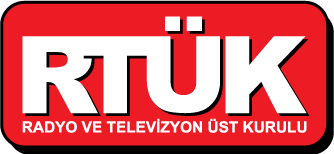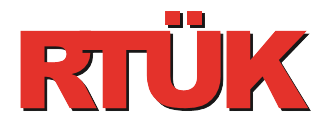European Union (EU) Activities
Since the beginning of 1980’s, rapid technological developments in the television broadcasting allowed the spillover of the broadcast signals from the national borders, the laws governing the audiovisual sector differed from one country to another and the growing deficit with the US in audiovisual trade - were the conditions that supported the idea of the European Commission for preparation of a European wide regulation.
In this context, “The Television Without Frontiers Directive (TVwF)” which was adopted in 1989, aimed to achieve free movement of television services within the Community, freedom of reception and retransmission and provided for some minimum harmonization with regard to a number of public policy objectives like protection of minors and public order, consumer protection (advertising), the promotion of European works and works by independent producers and the right of reply.
First revision in TVwF was done in 1997 in order to keep abreast of the audiovisual sector to the changing conditions due to the technological developments, convergence and market changes. Second revision studies were initialized in 2000 and the new draft directive which covers new technologies and allows liberalization of many provisions such as the ones related with advertising renamed as “Audiovisual Media Services Directive (AVMSD)” and published at the official gazette dated 18 December 2007 and entered into force on 19 December 2007.
The new Directive covers not only linear, traditional television media services but also non-linear, on-demand, television like audiovisual media services. In this context, the provisions of the Directive which are established on two pillars, are detailed and strict for television services whereas more flexible for the on-demand media services in order to encourage their development.
Contact Committee
International Relations Department has been regularly participating to the Contact Committee meetings on behalf of the Republic of Turkey which is responsible for the implementation of the legislation regulating the audiovisual media services field of the European Union (EU).
Harmonization of the Broadcasting Legislation with the European Union Acquis
Radio and Television Supreme Council has attended to the screening meetings of eight chapters before the accession negotiation process which was officially started between Republic of Turkey and the European Union as of the 3 October 2005.
After the screening meetings, Supreme Council has started harmonisation studies in the national legislation in accordance with the acquis under Chapter 10 “İnformation Society and Media” where RTUK is one of main responsible institutions. Under this context, at the meeting of the EU Council Enlargement Group, held in Brussels on 18 December 2008, representatives of the member states has evaluated the Draft EU Common Position and the Action Plan prepared by Turkey for the Chapter 10 “Information Society and Media”, as a result of this evaluation it was decided that the commitments placed in the Action Plan prepared by the RTUK were satisfactory for the opening of the chapter. At his meeting, Commission set closing benchmarks not only for the media field but also for the Information Society.
Closing benchmarks at the media field where Supreme Council is responsible for are as follows:
- Turkey should adopt the legislation in the audiovisual field, particularly the Audiovisual Media Services Directive (AVMSD) which includes measures that provides the harmonization of the legal framework with the freedom of reception and retransmission of the television broadcasts.
- Turkey should organize a forum of consultation with the relevant parties in order to discuss the impact of the measures which are adopted to ensure the independence of the regulatory body and the transparency of the audiovisual process.
In order to meet the closing benchmarks, The Law No. 6112 on the Establishment of the Radio and Television Enterprises and Their Media Services which was aligned with the Audiovisual Media Services Directive, the relevant EU Acquis, has been entered into force on 3 March 2011.
Moreover, restrictions on the broadcasts in different languages and dialects used traditionally by the Turkish citizens in their daily lives have been abolished, therefore existing media services providers are allowed to broadcast in languages and dialects requested on the condition that they have to apply for the Supreme Council.
European Union Country Report
Relevant information on the audiovisual media field which accounts for the contribution of Turkey in the Progress Reports prepared by the European Commission (EC) in order to show what each candidate country has achieved over the last year for the accession is sent to the Ministry of European Affairs by the International Relations Department on behalf of the Supreme Council. Additionally, all the items mentioned by the EC in the Progress Reports are taken into consideration by the Supreme Council during the preparation of the related legal regulations.
European Union Projects
International Relations Department carries out project studies under the funds and grants managed by the European Union. In this context, “Smart Signs” system which aims to classify television programmes in terms of the content of the programmes and the age of the viewers has been prepared by the International Relations Department under the MATRA project awarded by the Dutch Government to the candidate countries.


